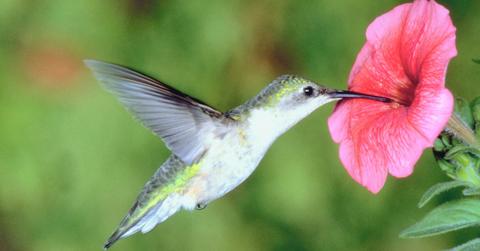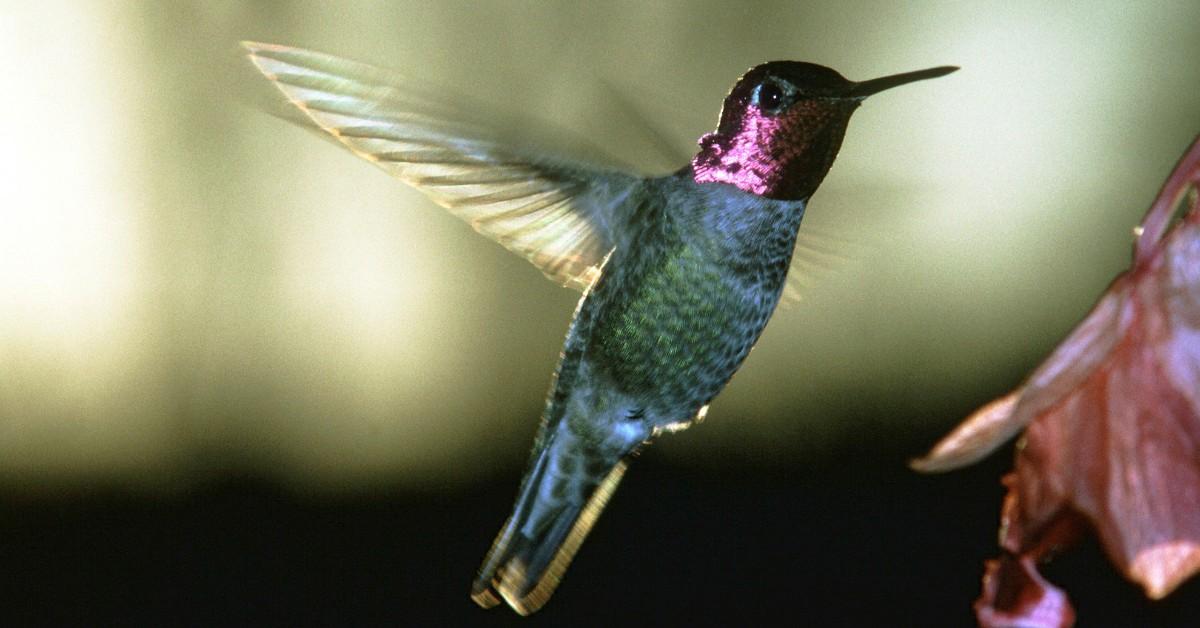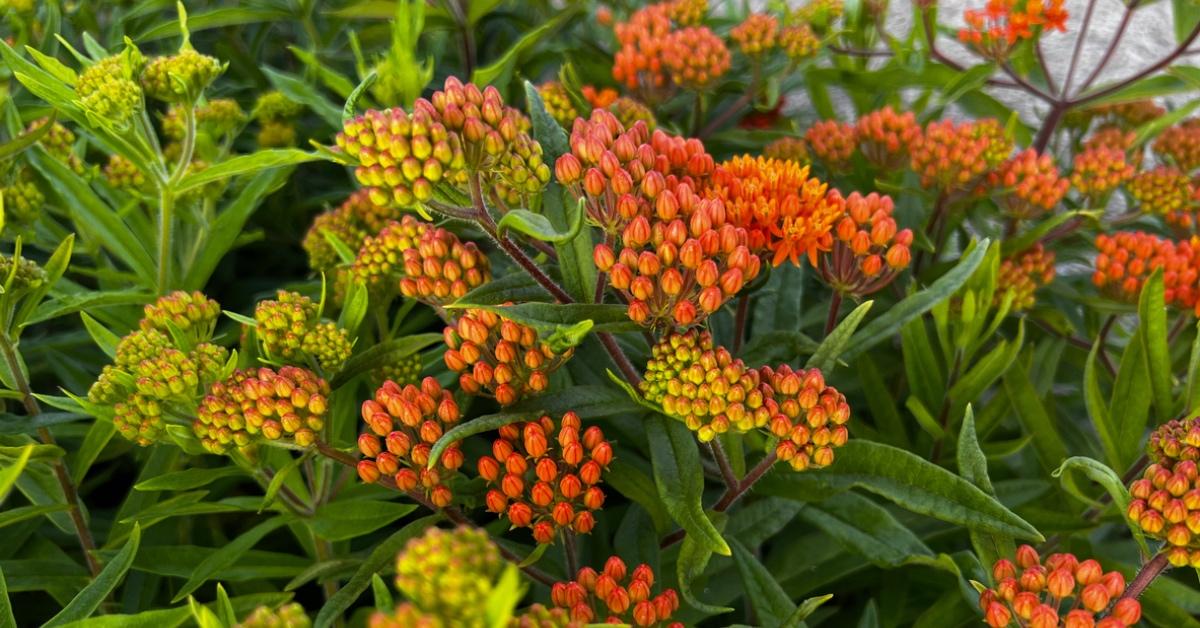What Plants Attract Hummingbirds the Most? Trumpet Vines and Cardinal Flowers Top the List
Hummingbirds love the color red.
Published July 11 2024, 12:59 p.m. ET

Hummingbirds are fascinating creatures that are beloved by many. It's not just their unique physiology — these tiny birds are far smaller than most of their other avian counterparts, with very long beaks and wings that flap up to 70 times per second — but also because of the effect they can have on anyone lucky enough to spot one.
If you want to bring more hummingbirds into your life, you can do so by placing a hummingbird feeder somewhere in your landscape. But those feeders do require frequent refilling and they're prone to pests, so an easier way to create a haven for these birds involves growing the flowers that the hummingbirds love to frequent. Take a look at this list of seven plants hummingbirds love to frequent and head out to your local nursery to nab a few for your yard.

Orange trumpet vine.
A personal favorite of mine, thirsty hummingbirds will flock to your yard to feast on the nectar inside the orange trumpet-shaped blooms on this vine. But, grower beware: trumpet vines are invasive in some areas and spread easily. Plant this sun-loving vine somewhere you can easily control it and be aware of other structures or plants (like trees) that you want to keep safe.
Cardinal flower.
If you didn't already know, hummingbirds are attracted to the color red. Many hummingbird feeders have red bases, and a lot of mass-produced hummingbird nectar has a red dye added.
Thankfully, there is a natural way to coerce hummingbirds to your garden — no red dye necessary! Try these cardinal flowers instead.
These plants start showing their colors towards the end of summer and into early fall, according to the National Wildlife Federation's Garden for Wildlife blog so they are great to grow alongside some other hummer favorites if you want to bring them to your yard all season long.
Orange butterfly milkweed.
There have been lots of talks about the importance of planting native milkweed in the garden to help sustain the nation's monarch butterfly population, but did you know that this flower does more than serve as a safe haven for monarchs? It's also a delicious treat for hummingbirds! Just make sure you're getting a native variety so that it will provide your local hummers and pollinators the nutrition they need to survive.
Foxglove beardtongue.
The tube-shaped flowers on this foxglove variety are perfect for feeding hummingbirds, who use their long, curved beaks to get deep into the center of the flower so they can extract the liquid from within. The Garden for Wildlife blog notes that this is also a monarch favorite, which means planting these flowers will support a variety of wildlife.
Pink azalea.
If you're looking for a bit of variety in your garden color wise, you can check out the pink azalea. These delicate blooms have a bit of red in the center, which draws in the hummingbirds, but from a distance they look like a light blush color.
Eastern columbine.
Penn State's College of Agricultural Sciences Center for Pollinator Research notes that the eastern columbine is also a hummingbird favorite. Not only that, but this plant is deer, rabbit, and drought tolerant, making it a perfect pick if you struggle to grow some other blooms because of the local wildlife.

Obedient plant.
Another great native option from the Center for Pollinator Research, the obedient plant can survive in a variety of conditions including partial to full sun, and moist to dry soil. That makes this one a good option for those looking for plants that can flourish in less favorable conditions.
Is there a plant called the hummingbird plant?
The Dicliptera suberecta is a reddish orange flowering plant from Uruguay that is also known as the hummingbird plant. The blooms are the perfect color and shape for the winged pollinator, making it obvious why it goes by the hummingbird name. This drought tolerant plant can do it all, and it makes a great choice for hanging baskets or garden borders, according to the Little Prince Plants blog.